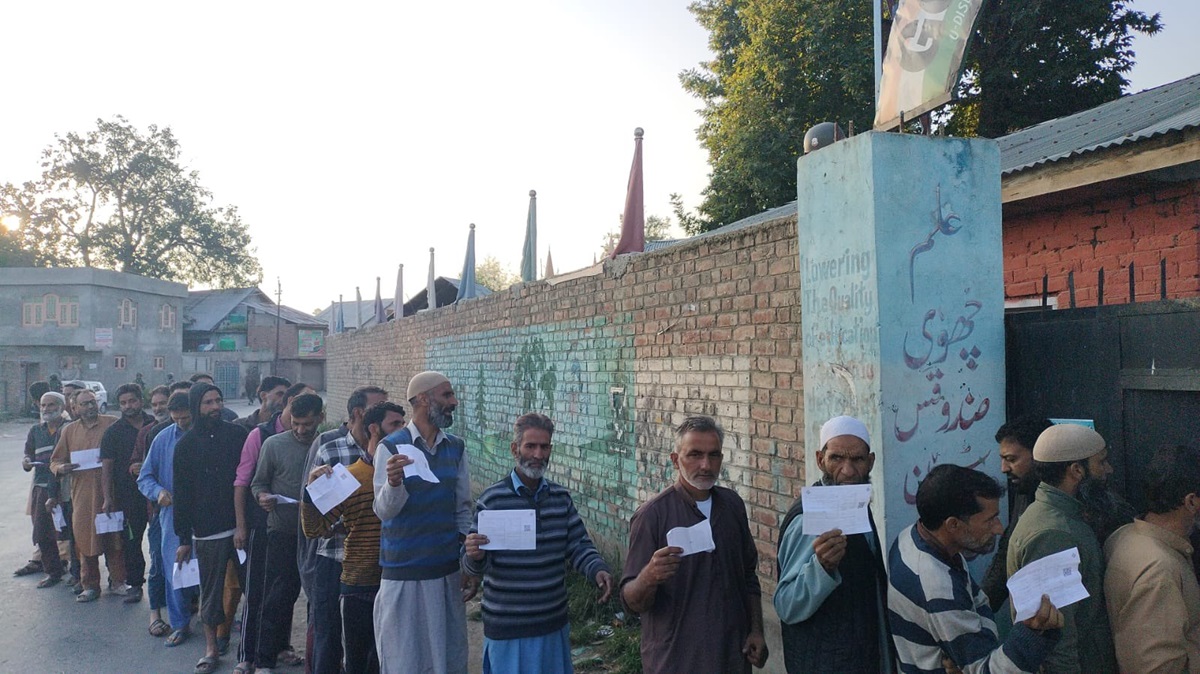Turnout just shy of 60 per cent in the first round of elections in Jammu and Kashmir
About 2.3 million voters cast their ballots for 24 of the 90 members of the Legislative Assembly. The poll is the first since the region’s special status was repealed in 2019. The turnout should be high, but results are expected to show a fragmented political landscape.
Srinagar - (AsiaNews) – About 2.3 million voters were called to the polls today to pick 24 members in the first round for the local legislative assembly in Jammu and Kashmir, the Muslim-majority region at the centre of a dispute between India and Pakistan.
After today's, the second and third rounds will be held on 25 September and 1 October, while the results are expected to be made public on 8 October.
At 5 pm (local time), an hour before polling stations closed, the turnout was just above 58 per cent.
In total, almost nine million voters are registered to elect 90 members of the Legislative Assembly, from hundreds of candidates.
This is the first election since 2014, when 11 of the 24 seats up for grabs today were won by the Jammu and Kashmir People's Democratic Party, led by former governor Mehbooba Mufti, once an ally of the Bharatiya Janata Party (BJP), the Hindu ultranationalist party that leads the national government.
These elections are also the first since the Indian government led by Prime Minister Narendra Modi scrapped the state’s special constitutional status in 2019, separating it from Ladakh and making it a Union Territory (like Delhi, the Andaman Islands, and Lakshadweep) under the control of the central government.
The BJP has also redrawn constituency boundaries, adding six seats to the Jammu division, where the population is mostly Hindu, and only one to Kashmir, which today has 47. In 2014, the BJP won 25 out of 37 seats (now 43) in Jammu.
During the election campaign, the BJP clashed with the Indian National Congress (INC), the main opposition party allied with the main local political party, the National Conference. One of the issues in the campaign was the return of Kashmiri Pandits, Hindus who left the Kashmir Valley for Jammu during the violence by Islamic extremists in the 1990s. The BJP has pledged to bring them back.
The INC slammed the administration imposed by the BJP starting in 2019 as a failure, focusing its campaign on youth unemployment in the region, which now tops 18 per cent, according to government data released in July, twice the national average.
In the past, armed groups seeking union with Pakistan (which fought several wars for control of the region after partition in 1947) targeted polling stations, while pro-independence candidates, including those of the Jamaat-e-Islami, boycotted the elections.
In India’s Union elections in April and May (when BJP won 24 per cent of the vote in Kashmir), the turnout rate was almost 60 per cent, the highest ever recorded in the last 35 years.
Even though he was in prison (bail was granted a week ago) on charges of financing terrorism, Sheikh Abdul Rashid, of the Awami Ittehad Party (which is allied with the Jamaat-e-Islami), was elected in June to the Lok Sabha for the Baramulla constituency, defeating Omar Abdullah, a former governor and leader of the National Conference.
Against this political backdrop, commentators expect a high turnout, and results that will be difficult to interpret given the high number of candidates running as independents.
“This election might actually give people a sense of power at local level after having been subjected to continuous disempowerment since 2019,” said a local political observer, who preferred to remain anonymous.
However, after the repeal of Article 370 that gave Jammu and Kashmir its special status, the new administration will have limited powers over several issues, including education and taxation.
“We know this Assembly will not have much power,” said a fruit grower speaking to local media. “But what if our vote compels New Delhi to rethink its strategy and grant us statehood?”







.png)










